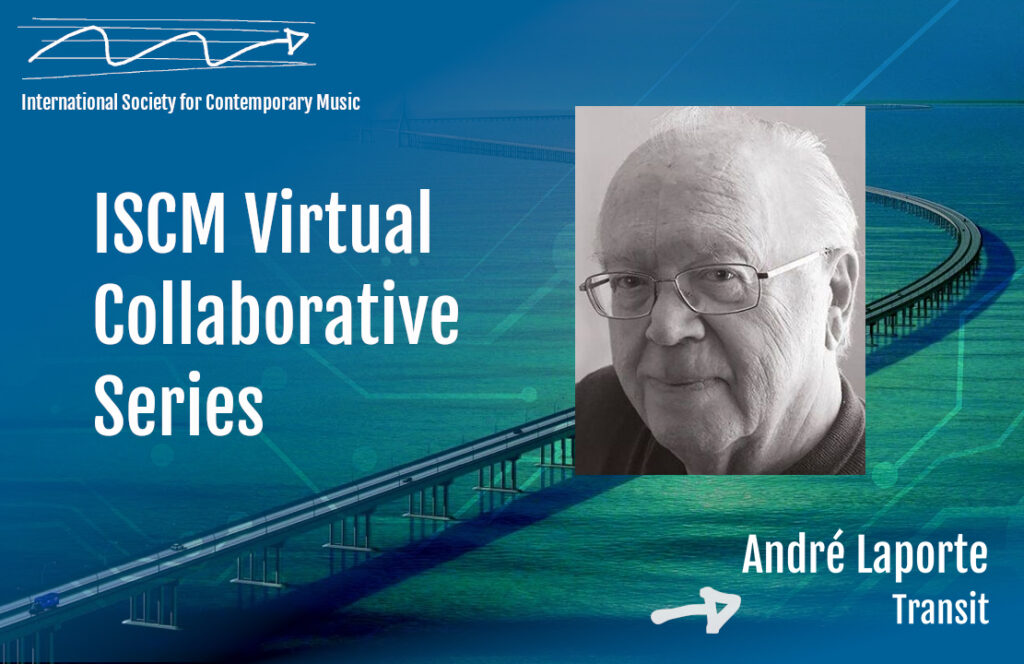André Laporte: Transit

(A special selection in celebration of the 90th birthday of ISCM Honorary Member André Laporte)
André Laporte (b. 12 July 1931) has been a key figure in the music life of his native Belgium. He worked at the Belgian Radio (BRT, now VRT), first as a producer, later as a program coordinator, a production leader of the BRT Philharmonic Orchestra (1989), and ultimately as director of Artistic Ensembles (1993-1996). He also taught for many years as a professor of composition at the Royal Conservatory in Brussels and the Queen Elisabeth Music School (Muziekkapel Koningin Elisabeth) in Waterloo. Among his students have been Luc Brewaeys, Daniël Capelletti, and former ISCM President Peter Swinnen. Laporte has also been active in the ISCM for over 40 years. In 1972, together with Herman Sabbe, he set up a new ISCM Belgian Section, after Belgium had been inactive in the network for nearly 20 years. He has remained the chairperson of the section to this day. In addition to serving as a delegate to the ISCM General Assembly he later served as a member of the Executive Committee. Laporte’s music was first performed on an ISCM World Music Days festival in 1976 in Boston where his composition Harry’s Wonderland for bass clarinet and 2 tapes was performed by Harry Sparnaay. The following year he served for the first time on the international jury for the ISCM World Music Days for the festival in Bonn and served again just four years later for the 1981 Festival in Brussels and Ghent. His involvement continued in the ensuing decades and André Laporte was elected an Honorary Member of the ISCM by the delegates to the ISCM General Assembly in 2006.
In Transit for 48 strings, composed in 1979, the composer tried to combine the different meanings, significations and interpretations of the idea of the transient. According to the composer, the “transient character in this composition is present on different levels. First of all the level of sound material, which is in this case the range of possibilities in the field of sound production available nowadays with string instruments. Those possibilities include the traditional string sound, as well as the various systems of sound distortion and even the noise. Another level is the development of form: the succession, the overlapping and the transition of sound layers of different nature, different sound patterns or rhythmic patterns. There is also the level of historical context; the interaction of contact and repelling, first between tonal and atonal sound fields, then between sounds and noises, last of all between noises and silence.” Transit was performed by the BRT Filharmonisch Orkest under the direction of Lucas Vis on the final concert of the 1981 ISCM World Music Days in Belgium. In honor of the Royal Conservatoire of Brussels’ celebration on 17 November 2021 in honor of André Laporte’s 90th birthday, below is a performance from 30 years later featuring the Conservatory’s Symphony Orchestra conducted by Martijn Dendievel.

ISCM
